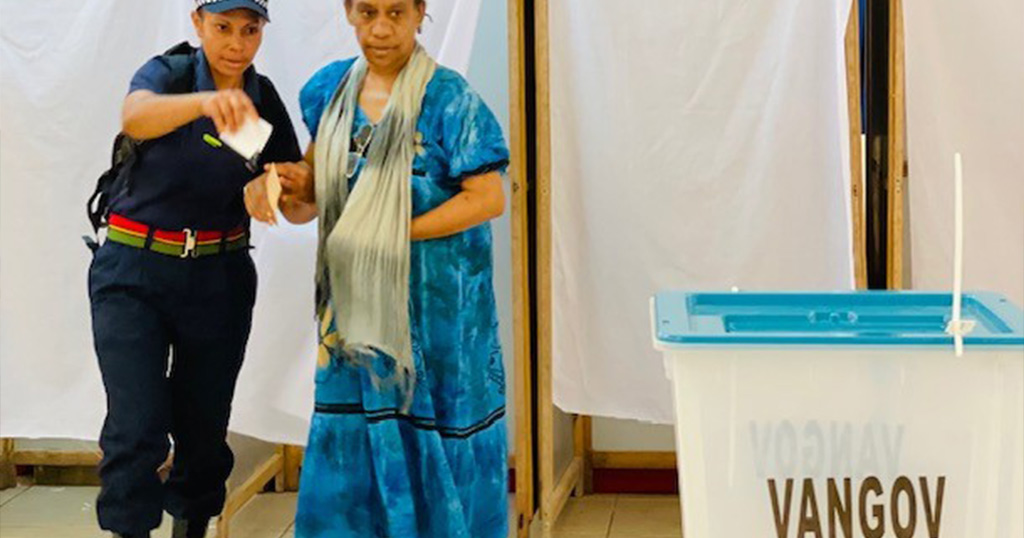The Vanuatu Electoral Office (VEO) through the support of the MFAT funded Vanuatu Electoral Environment Project (VEEP), which is administered by the UN Development Programme, has been engaged in electoral inclusion by making participation for everyone in elections easier – especially for people living with a disability.
Ginette Morris, the National Disability and Social Welfare Officer at Ministry of Justice and Social Welfare recently acknowledged the importance of electoral processes access.
“People with a disability should be involved in elections to make their needs and voices heard but many are ‘still in dark corners’ with no Birth Certificate, no National ID, no Electoral Card; have not attended school, may be illiterate and feel left behind,” she said.
There have been improved election participation access such as the national ID cards, updated electoral rolls and more polling stations. However, for people living with a disability, the Vanuatu Electoral Office is looking at wheelchair accessibility for polling booths, assistance at polling stations for people who are visually impaired, accessible toilets, approval for helpers to support, and improved information flow about upcoming elections.
The VEEP Project supported development of mobile applications loaded on 400 tablets to assist in checking electoral data, voter identification by National ID Card and digital Electoral Rolls. Once there is verifiable VNSO data on PWD, it may be possible to use the Polling Booth location data (linked with newly developed Web Maps) to track PWD voters.
VEEP has supported training for 75 enumerators (people who enter data) to use the tablets – mainly AUF and USP students on contract. VEO has decided that a Sensitisation Training will be rolled out to their own staff and made available to polling booth officers, police officers, area council officers and enumerators as well as election day volunteers, to make them aware of the special needs of those living with a disability.
Electoral Information will be made accessible to PWD through radio programs; TV (for Luganville and Vila) for people who are sighted; not too much text in election brochures; Pictographic Posters with limited narrative and picture savvy and by utilising the networks of established disability Non-Government Organisations (NGOs) for information dissemination i.e. VPDA’s Disabled People Organisations (DPOs) are in every province and could be utilised for election inclusion workshops and materials distribution. Community workshops will emphasise the importance of everyone’s vote.
Abraham Lincoln, the famous USA President commenting on the right for everyone to be involved in democratic elections — no matter age, gender, location, language or whether the voter has a disability, “A democracy is a government of the people, by the people and for the people” — a message the VEO is taking to heart and putting into practice.
--
Original article can be found here at the Daily Post.
